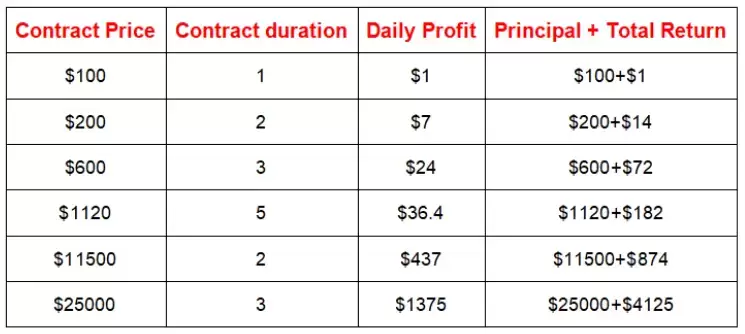 |
|
 |
|
 |
|
 |
|
 |
|
 |
|
 |
|
 |
|
 |
|
 |
|
 |
|
 |
|
 |
|
 |
|
 |
|
不可否认的是,AI已经渗透到当今大部分流行的工业领域。但是,当涉及金融领域时,其影响尤其明显,AI交易代理 - 利用机器学习,自然语言处理和实时数据分析以优化交易决策的自治实体,在全球范围内获得了很多关注。

In today's rapidly evolving technological landscape, Artificial Intelligence (AI) has undoubtedly made its mark on most of the industry sectors that matter. But perhaps no domain has felt the full brunt (or benefit) of AI's capabilities as keenly as the financial realm.
在当今迅速发展的技术景观中,人工智能(AI)无疑在重要的大多数行业领域都留下了自己的印记。但是,也许没有任何领域能像财务领域那样敏锐地感到AI能力的全部(或受益)。
This is especially true when it comes to AI trading agents – autonomous entities that are capable of learning, adapting, and making optimal trading decisions on their own, combining the best of machine learning, natural language processing, and real-time data analysis to generate high-performing trading strategies.
当涉及AI交易代理商时,这尤其如此,这些实体能够自动进行学习,适应和自行做出最佳的交易决策,结合机器学习,自然语言处理和实时数据分析以产生高性能交易策略。
A quick glance at the numbers reveals that the market for such agents is poised for significant growth, with experts predicting the technology to expand at an impressive rate, rising from a 2024 valuation of $5.1 billion to an astounding $47.1 billion by 2030.
快速浏览数字表明,此类代理商的市场有望实现显着增长,专家预测,该技术将以令人印象深刻的速度扩展,从2024年的估值上升到51亿美元,到2030年的471亿美元。
Moreover, in markets like India, AI-based algorithmic trading has already reached unparalleled heights, currently handling about 55% of the total trading volume on the nation's largest exchange, the NSE. To put that into perspective, retail investor participation in algorithm-based trades has increased by 25%, while the adoption of AI-powered trading models (in India alone) has surged 120% over the last 5 years.
此外,在印度这样的市场中,总部位于AI的算法交易已经达到了无与伦比的高度,目前处理美国最大交易所总交易量的约55%。从角度来看,散户投资者参与基于算法的交易的参与增长了25%,而在过去的5年中,采用AI驱动的交易模式(仅在印度)飙升了120%。
And to no surprise, these agents have been found to deliver prediction accuracies of up to 78%, especially when signaling short-term market corrections.
毫不奇怪,已经发现这些代理商可提供高达78%的预测准确性,尤其是在信号短期市场校正时。
An AI-driven DeFi ecosystem
AI驱动的Defi生态系统
The last couple of years have seen the DeFi sector undergo a massive makeover, with technologies like AI, NLP, and ML (amongst several others) rapidly seeping into this space. There are now many blockchain-based protocols that have integrated AI into their frameworks to enhance market efficiency, all while simultaneously allowing traders to execute sophisticated strategies without their constant involvement or oversight.
在过去的几年中,Defi行业经历了大规模的改头换面,诸如AI,NLP和ML之类的技术(其他几个)迅速渗入了这一空间。现在,有许多基于区块链的协议已将AI集成到其框架中以提高市场效率,同时允许交易者在不持续参与或监督的情况下执行复杂的策略。
Among the projects leading this roost, Giza has stood out head and shoulders above the rest of the competition, offering clients a holistic agent-driven DeFi automation platform.
在领导这一栖息的项目中,吉萨(Giza)在竞争中的其余部分都脱颖而出,为客户提供了一个由代理驱动的Defi Automation平台。
At its core, Giza provides the necessary infrastructure for the next generation of autonomous DeFi agents. Its ‘semantic abstraction layer’ simplifies complex protocol interactions, enabling AI agents to interpret and execute financial operations more effectively while its ‘agent authorization layer,’ built on smart account infrastructure, ensures non-custodial operations and allows users to retain full control over their assets. Finally, its ‘decentralized execution layer’ provides crypto-economic security guarantees, ensuring that agents operate in a transparent and trustless manner.
Giza的核心为下一代自主偏见代理提供了必要的基础设施。它的“语义抽象层”简化了复杂的协议交互,使AI代理能够更有效地解释和执行财务运营,而其“代理授权层”建立在智能帐户基础架构的基础上,确保非抑制操作,并允许用户保留对其资产的完全控制。最后,其“分散执行层”提供了加密经济安全保证,以确保代理以透明且无信任的方式运作。
That said, Giza’s true innovation lies in its autonomous trading agent, ARMA, which operates far beyond the capabilities of basic automated tools. To elaborate, ARMA has been designed to continuously monitor multiple DeFi protocols, execute complex yield strategies, and dynamically adapt to changing market conditions (while maintaining a high degree of user security and sovereignty).
也就是说,吉萨的真正创新在于其自主贸易代理Arma的运作远远超出了基本自动化工具的能力。为了详细说明,ARMA旨在不断监视多个FEFI协议,执行复杂的收益策略,并动态适应不断变化的市场条件(同时保持高度的用户安全性和主权)。
Also, unlike conventional bots that follow rigid pre-programmed instructions, ARMA functions with an adaptive intelligence layer, enabling it to respond to real-time financial changes with precision. As things stand, there are already thousands of ARMA-driven agents managing hundreds of thousands in assets across leading lending protocols.
同样,与遵循严格的预编程说明的常规机器人不同,ARMA具有自适应智能层的功能,使其能够精确地响应实时财务变化。从事物看来,已经有成千上万的ARMA驱动的代理商在领先的贷款方案中管理数十万个资产。
AI trading analyzed within a global context
在全球环境中分析的AI交易
As AI-powered trading agents have gained prominence, regulatory bodies worldwide are taking steps to establish governance frameworks that ensure fair and transparent financial markets, as they introduce certain new risks (including algorithmic biases, market manipulation, and potential systemic failures) into the mix.
随着AI驱动的贸易代理商的突出性,全世界的监管机构正在采取措施建立治理框架,以确保公平和透明的金融市场,因为它们会引入某些新风险(包括算法偏见,市场操纵和潜在的系统性失败)。
For instance, in Germany, financial regulators have established a clear and structured framework for AI-driven trading platforms, thus providing much-needed stability and legal clarity for financial service providers deploying AI in their routine trading operations. Plans for the introduction of an AI code of conduct with guidelines for due diligence, data governance, and explainability of algorithmic trading systems are also in place.
例如,在德国,金融监管机构为AI驱动的交易平台建立了一个清晰且结构化的框架,从而为金融服务提供商提供了急需的稳定性和法律上的清晰度,以便在其常规交易运营中部署AI。引入AI行为守则的计划以及算法交易系统的尽职调查,数据治理和解释性的指南也存在。
Similarly, India's Securities and Exchange Board (SEBI) has implemented specific regulations for algorithmic trading, ensuring that AI-driven strategies operate within well-defined parameters to prevent market abuses. SEBI's regulations also mandate the creation of internal governance structures and procedures for managing algorithmic trading activities.
同样,印度的证券交易委员会(SEBI)实施了针对算法交易的特定法规,以确保AI驱动的战略在定义明确的参数中运行以防止市场滥用。 SEBI的法规还要求创建内部治理结构和程序来管理算法交易活动。
Beyond national regulations, the broader global financial landscape is adapting to AI-driven finance. The Bank of England, for instance, is considering the inclusion of AI-related stress tests in its annual assessments to evaluate potential systemic risks posed by algorithmic trading.
除了国家法规之外,更广泛的全球金融格局正在适应AI驱动的金融。例如,英格兰银行正在考虑将与AI相关的压力测试纳入其年度评估,以评估算法交易带来的潜在系统性风险。
Looking ahead, it will be interesting to see how AI's growing influence on financial markets impacts the broader economic landscape.
展望未来,有趣的是,看到AI对金融市场的影响如何影响更广泛的经济格局。
免责声明:info@kdj.com
所提供的信息并非交易建议。根据本文提供的信息进行的任何投资,kdj.com不承担任何责任。加密货币具有高波动性,强烈建议您深入研究后,谨慎投资!
如您认为本网站上使用的内容侵犯了您的版权,请立即联系我们(info@kdj.com),我们将及时删除。
-

-

-

- 黄金支持的Stablecoins解释说:它们是什么,它们如何工作?
- 2025-04-21 23:45:12
- 黄金支持的稳定币是将数字货币固定在物理金储备中,旨在保持稳定的价值。
-

-

-

-

- BNB链超过Tron和以太坊,成为交易USDT的最受欢迎的网络
- 2025-04-21 23:35:12
- BNB连锁店已成为交易USDT的最受欢迎的网络之一,超过了Tron和Ethereum等其他区块链网络。
-

-




























































